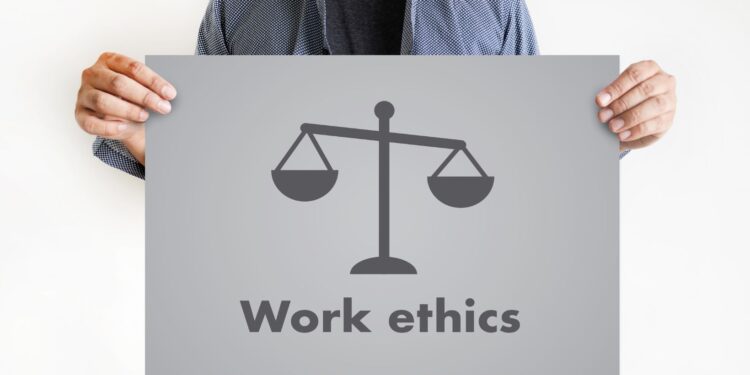Are Ethical and Legal Responsibilities the Same
When it comes to navigating the complex world of responsibilities, it’s important to distinguish between ethical and legal obligations. While the two may overlap in some instances, they are not always one and the same. As an expert blogger, I’ve delved into this topic to shed light on the key differences and similarities between ethical and legal responsibilities. In this article, I’ll explore the nuances of these two concepts, uncovering how they impact individuals and organizations alike.
Ethical responsibilities refer to the moral obligations that individuals or organizations have towards others. These responsibilities are not enforceable by law, but rather stem from a sense of right and wrong. As an expert in the field, I’ll delve into the various ethical frameworks that guide decision-making, such as consequentialism, deontology, and virtue ethics. By understanding these different perspectives, we can gain insight into the complexities of ethical responsibilities and how they differ from legal obligations.
On the other hand, legal responsibilities are the obligations that are mandated by laws and regulations. These responsibilities are enforceable by the legal system and failure to comply can result in legal consequences. Throughout this article, I’ll provide examples of common legal responsibilities that individuals and organizations must adhere to, such as paying taxes, following employment laws, and maintaining safety standards. By examining these legal obligations, we can gain a clearer understanding of how they intersect with ethical responsibilities, and whether they always align.
While ethical and legal responsibilities may share some similarities, they are distinct concepts that guide our actions in different ways. By exploring the nuances of these two types of responsibilities, we can gain a deeper understanding of the moral and legal frameworks that shape our society. In the following sections, I’ll delve into specific examples and case studies to further illustrate the differences and overlap between ethical and legal responsibilities. Stay tuned for a comprehensive exploration of this thought-provoking topic.
Understanding Ethical Responsibilities
When it comes to understanding ethical responsibilities, it’s important to recognize that they are distinct from legal responsibilities. Ethical responsibilities are rooted in moral principles and values, guiding our behavior and actions towards others. They reflect our sense of right and wrong, and our commitment to fairness, honesty, and respect.
Ethical responsibilities are not imposed by laws or regulations, but rather arise from our own conscience and personal beliefs. They require us to consider the impact of our choices on others and to strive for positive outcomes that benefit society as a whole. While legal responsibilities are enforceable by the justice system, ethical responsibilities are more subjective and rely on individual and collective judgment.
To further clarify the differences between ethical and legal responsibilities, let’s consider an example. Imagine a situation where a company is legally allowed to use certain chemicals in their manufacturing process. However, it’s discovered that these chemicals are harmful to the environment and pose a risk to nearby communities. While the company may not be breaking any laws, they have an ethical responsibility to consider the potential harm caused by their actions and to take steps to mitigate it.
Ethical responsibilities can be guided by various frameworks, such as utilitarianism, deontology, or virtue ethics. These frameworks provide different perspectives on what is morally right and help individuals and organizations make informed ethical decisions.
Ethical responsibilities are distinct from legal responsibilities. While legal responsibilities are mandated by laws and regulations, ethical responsibilities are based on moral principles and values. They require us to consider the impact of our actions on others and strive for positive outcomes. By understanding and embracing our ethical responsibilities, we can contribute to a more just and ethical society.

Understanding Legal Responsibilities
When it comes to ethical and legal responsibilities, it is important to recognize that they are not the same. While ethical responsibilities are rooted in moral principles and values, legal responsibilities are obligations mandated by laws and regulations. In this section, I will delve deeper into the concept of legal responsibilities and highlight their significance.
Defining Legal Responsibilities
Legal responsibilities are the obligations that individuals or organizations have to comply with the laws and regulations set forth by the governing authorities. These laws are established to maintain order, protect individuals’ rights, and ensure fairness in society. Failure to fulfill legal responsibilities can result in legal consequences, such as fines, penalties, or even imprisonment.
Enforceable by the Justice System
Unlike ethical responsibilities, which are more subjective and rely on individual judgment, legal responsibilities are enforceable by the justice system. This means that there are clear consequences for not fulfilling these obligations. The justice system ensures that individuals or organizations are held accountable for their actions or inactions that violate the law.
Examples of Legal Responsibilities
Legal responsibilities can vary depending on the jurisdiction and the nature of the individual or organization. Some common examples of legal responsibilities include:
- Complying with tax laws: Individuals and businesses have a legal responsibility to accurately report their income and pay the appropriate taxes.
- Adhering to employment laws: Employers have a legal responsibility to provide a safe working environment, follow fair employment practices, and comply with minimum wage laws.
- Respecting intellectual property rights: Individuals and organizations have a legal responsibility to respect copyrights, trademarks, and patents.














